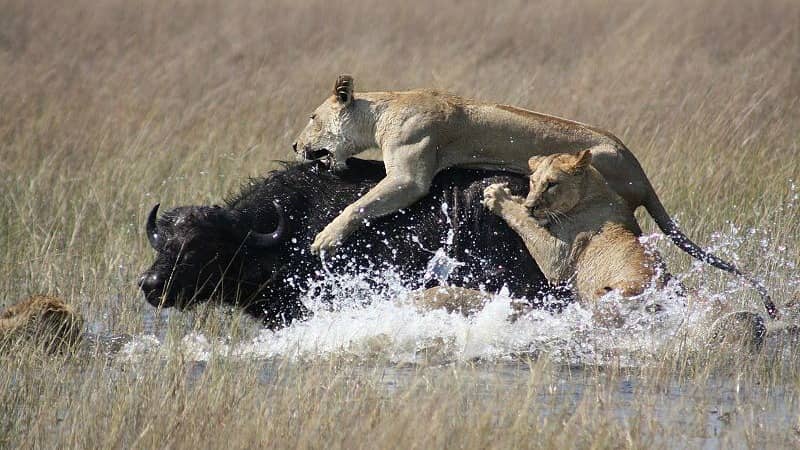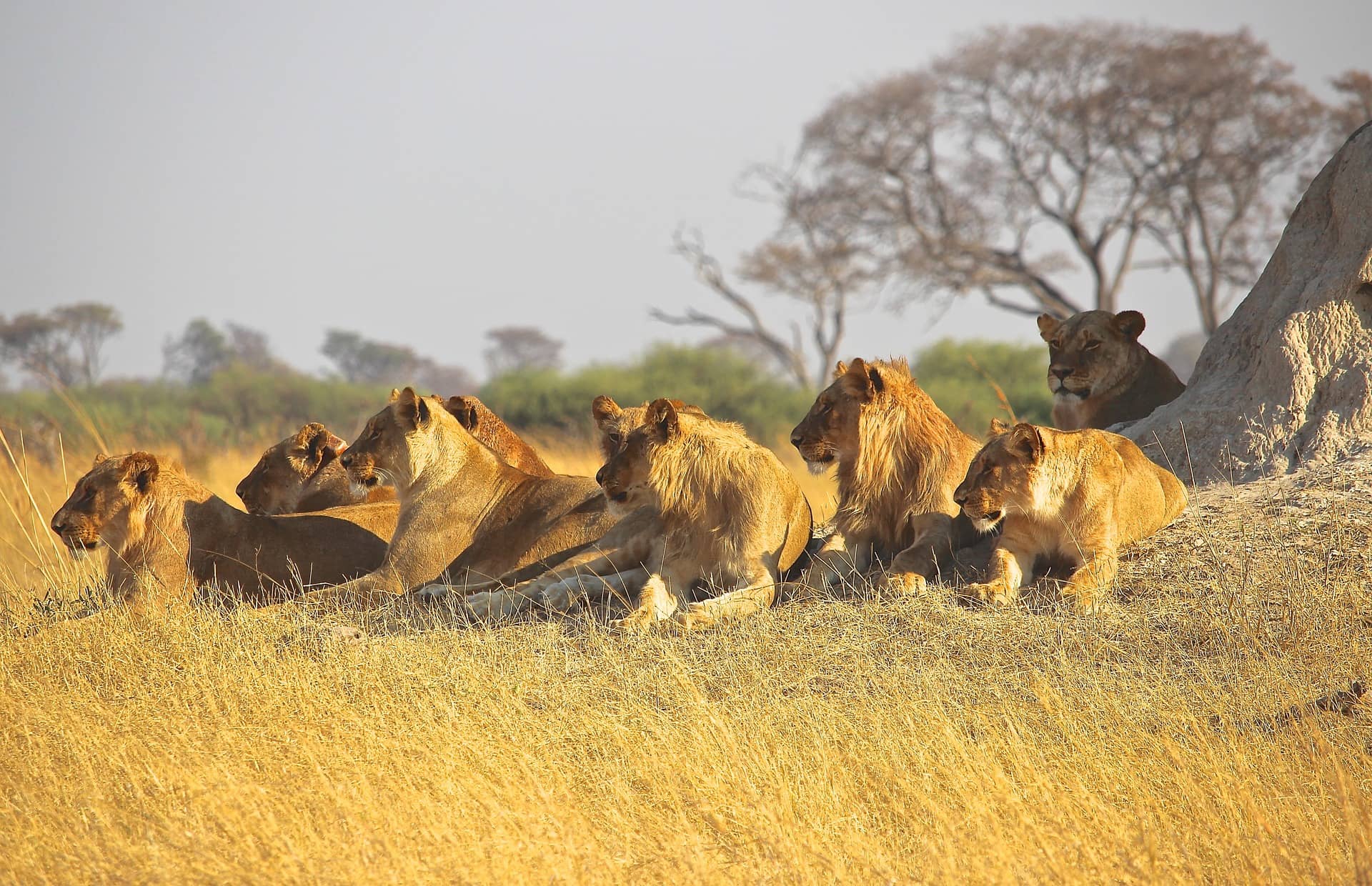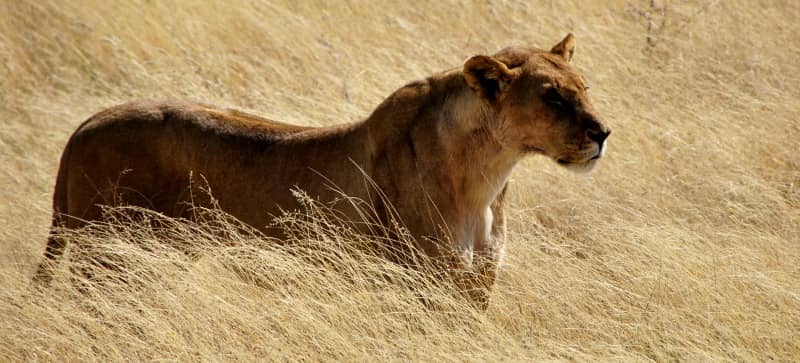African lion hunting facts
Have you ever wondered how African lions hunt?
 Why do lions hunt in groups?
Why do lions hunt in groups?In this article we will answer the following questions:
- Why do lions hunt in groups?
- Do they ever hunt alone?
- What is lion hunting success rate?
- Is hunting solo or in groups more effective for lions?
- When do they hunt?
- What percentage of lion hunts are successful?
Because lionesses, usually manage the hunting for their pride, there has long been a misunderstanding that male lions are lazy when it comes to hunting.
Fact is, male lions can also be successful hunters despite beliefs that females do all the work. Female lions are recognized as successful hunters because of the coordinated techniques they use.
Male lions are just as capable of hunting as female lions, but they are less cooperative than female lions.
Apologies
Coming soon page

The African pride family
African lions are the only cats, which have close-knit social groups and the only ones that regularly hunt in groups.

They live in groups called a “pride” which is made up of up to 15
individuals.
One of the main reasons for living in a pride is that they can work together during hunts which improves their success rate.
How do lions hunt?
Individual lions usually use feline hunting techniques.
Feline hunting techniques: Stalk, run and pounce.
This means they'll stalk the prey up to 20 meters away, hiding behind whatever cover they can find.
Then there's a sprint and chase that lasts no more than 200 meters.
The target is grappled with claws, pulled down, and suffocated by a throat bite.
They may also hold the prey animal's muzzle.
Lions, unlike other cats, hunt in packs on a regular basis.
Depending on the difficulty of the hunt, the degree and type of collaboration varies.
If a herd of tiny prey like impala is being hunted, each lion will go for its own prey.
When dealing with larger, more dangerous prey, collaboration may be required to split a herd or to capture and kill a single animal.
Lion hunting facts
- In the Kruger National Park their diet consists of:
- impala 29%,
- zebra 16%,
- wildebeest 14% and
- warthog 13%.
African lions prefer a diet of medium and large prey in the 50 to 300 kilogram range.
The lion diet will occasionally include larger species like giraffes, hippos and even young elephants.
Lions may also sometimes dig warthogs out of their shallow burrows.
What are the African lion hunting success rates?
When African lions hunt alone they are successful in one out of six attempts.
However, when they hunt as a group their success rate goes up to one in three.
With larger prey such as buffalo, single lions do not even bother to attack.
In the Etosha National Park when hunting blue wildebeest, single lionesses:
- make 0,28 kills per hunt while,
- groups of 7 make 0,75 kills per hunt.
Do lions have enemies?
Unless they are heavily outnumbered they can chase away any other carnivore from its prey. Adult male lions do not make way for other predators.
This is the reason why the presence of male African lions in a pride reduces losses of kills to spotted hyenas.
|
Diet |
Carnivore |
|
Size |
Head and body, 4.5 to 6.5 ft (1.4 to 2 m); Tail, 26.25 to 39.5 in (67 to 100 cm) |
|
Weight |
265 to 420 lbs (120 to 191 kg) |
|
Group name |
Pride |
|
Habitat |
Can live in a wide range of habitats except for rain forest and deserts. Lions can go for long periods of not drinking water. |
|
Gestation period |
110 days |
Is it true that the lionesses do most of the hunting?
Lionesses are often the more active hunter in open areas like the Serengeti.

In the more wooded areas like the Kruger National the male lions acquire most of their food by killing it themselves.

